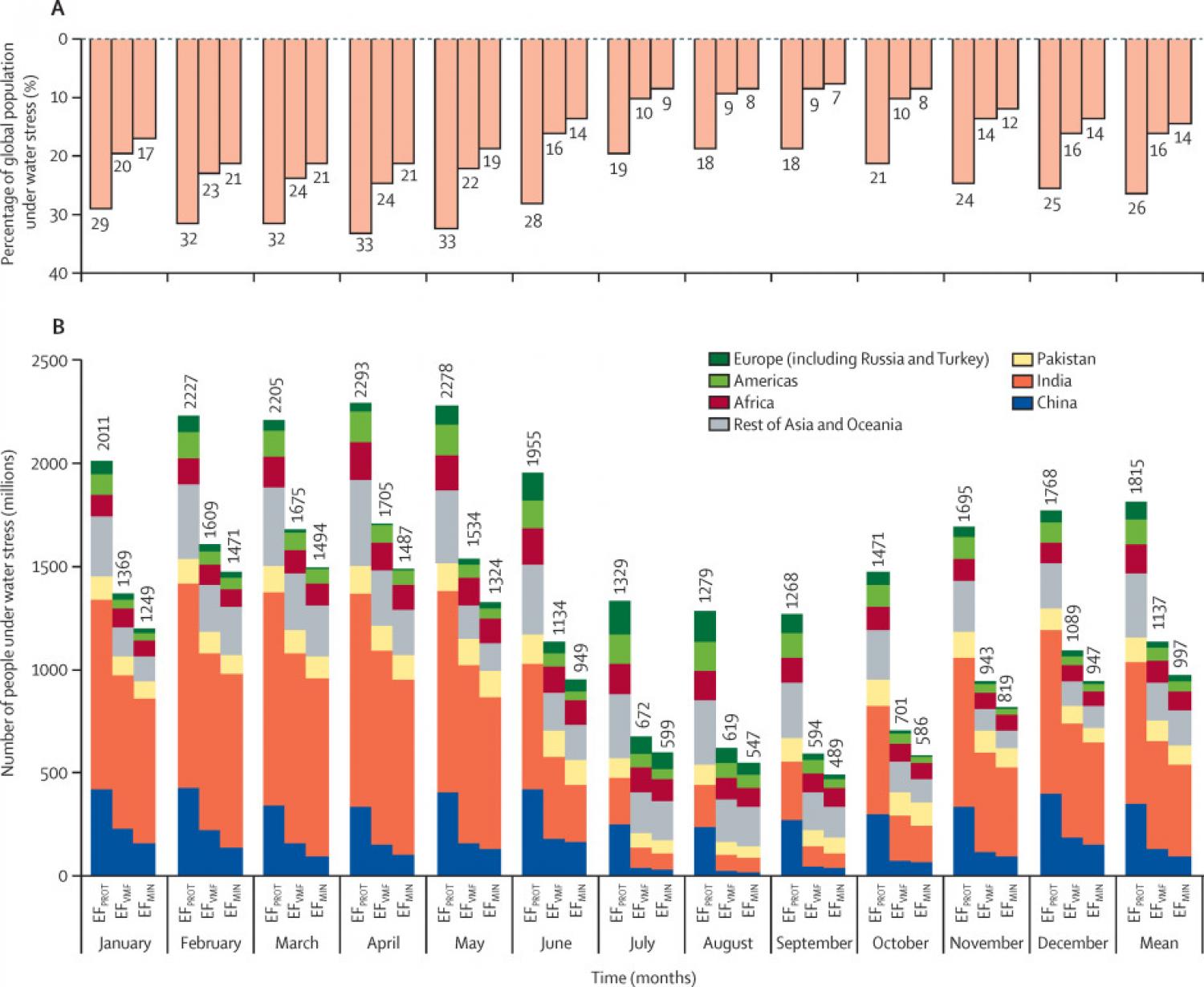
Background: Increasing human demand for water and changes in water availability due to climate change threatens water security worldwide. Additionally, exploitation of water resources induces stress on freshwater environments, leading to biodiversity loss and reduced ecosystem services. We aimed to conduct a spatially detailed assessment of global human water stress for low to high environmental flow (EF) protection. Methods: In this modelling study, we used the LISFLOOD model to generate daily natural flows without anthropogenic water use for 1980–2018. On the basis of these flows, we selected three EF methods (EF with high ecological protection [EFPROT], EF with minimum flow requirements [EFMIN], and variable monthly flow [EFVMF]) to calculate monthly EFs. We assessed monthly consumptive water use for industry, agricultural crops, livestock, municipalities, and energy production for 2010. We then estimated the corresponding number of people under water stress per month on a global and national level using a spatially detailed population database for 2010. Findings: We estimate that 3·2 billion (EFPROT), 2·4 billion (EFVMF), and 2·2 billion (EFMIN) people lived under water stress for at least 1 month per year, corresponding to 46%, 35%, and 32% of the world's population in 2010, respectively. Around 80% of people living under water stress lived in Asia; in particular, India, Pakistan, and northeast China. Compared with EFMIN, imposing EFPROT globally would have put between 710 million (March) to 1 billion (June) additional people under water stress on a monthly basis, whereas this would have been 72 million (August) to 218 million (April) additional people if EFVMF were imposed. Interpretation: Ensuring high ecological protection would put nearly half of the world's population (3·2 billion people) under water stress for at least 1 month per year. Policy makers and water managers have to make an important trade-off when allocating limited water resources between direct human needs and the environment. A better understanding of local ecosystem needs is crucial to alleviating current and future human water stress, while sustaining healthy ecosystems. Funding: None.
